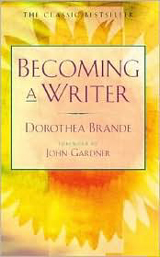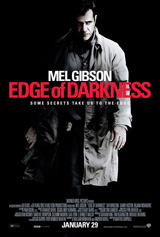It’s been five days since I returned home from Cambridge, where I was studying fiction and screenwriting for three weeks at Pembroke College. Writers retreats like this one can be life-changing. How one reintegrates back into real life, however, is integral to the long-term effect of such a getaway. So over the past couple of days we’ve been discussing how to make the most of a writers retreat after you’ve returned home.
Now that you’ve unpacked and done your laundry—and are continuing to struggle with jet lag, as I am—turn back to the analysis you conducted upon the completion of your trip. In those pages you probably identified habits or routines or rituals that proved helpful during your stay—whether related to your writing or not. Now your challenge is to maintain these under circumstances not necessarily tailor-made to fostering creativity.
The most prominent feature of any writers retreat is the focus on the work. It was refreshing that my only job for three weeks was to write. Likewise, my first priority now that I’m back at home should continue to be writing.
This is obvious in the abstract. The question is how to implement it in real-world ways by prioritizing it in my schedule and eliminating distractions.
Since my time at Cambridge was part of graduate coursework, my writers retreat is perhaps unique in that half of my days were regimented. I had to be in class by nine a.m. four days a week. Additional afternoon, evening, and weekend activities were also scheduled. At the outset of our stay, we were given a three-week calendar with these obligations blocked out. I had to plan ahead in order to complete my homework on time, and the chart helped me identify chunks of time I could dedicate to work. Such a visual tool is easily transported to my everyday life.
Meanwhile, as mentioned previously, I didn’t see a television throughout my three-week stay. Although the absence of a boob tube was a refreshing break from my media-saturated existence back home, I love my TV. I won’t be throwing it out. Also, the Olympics commence this evening—I love sports and could watch the competition twenty-four-seven. But I can be, and have been, more judicious in my viewing—the TV doesn’t have to be on all the time to keep me company during the day.
Unrelated to writing—but perhaps not, given Haruki Murakami’s recently published memoir What I Talk About When I Talk About Running—I got out and jogged about three days a week during my time in Cambridge. It was easy to get motivated with so many riverside trails so close to college.
And I hoofed it everywhere: to the Orchard (a three-mile walk, each way), to the pub, to the grocery store. Los Angeles is far from a pedestrian-friendly town, but I’m lucky to live within reasonable walking distance to a bookstore, a movie theater, the Farmer’s Market. I can keep up the daily perambulations.
In addition to a television, what I also didn’t see throughout my travels in England were paper towels. Blow dryers were standard, as was recycling. The food served at Pembroke’s cafeteria, the Buttery, was organic, local, and free-range. Fruit and juice both on campus and in the stores were labeled “fair trade,” guaranteeing that fair prices were paid to Third World producers.
The country is damn civilized. Clearly, sociably responsible living is possible, a lifestyle I can aspire to maintain.
What I can’t do much about, now that I’ve returned form Cambridge, are my commute times. At Pembroke, it took five minutes to get across campus to class. In L.A., it takes an hour in the car to get anywhere. (Although the time could be used for focused thinking, a topic discussed by guest speaker Jill Dawson.)
And I don’t have a private chef—shopping for groceries and making dinner place demands on my schedule I didn’t have in Cambridge. Not that I’d give it up—I enjoy cooking. But maybe I don’t have to do it every day. Maybe leftovers can free up my schedule a little every once in a while.
A regimented schedule, limited distractions, a healthy and socially responsible lifestyle—these are all habits I developed while at Cambridge and hope to maintain now that I have returned home. Tomorrow we’ll discuss ways to keep motivated by extending the writers retreat experience.
In the meantime, what are your strategies for retreat recovery?
Caught in the ’Net
A British lecturer of criminology has ignited a heated debate by suggesting the acceptance of the “most common mistakes as variant spellings.”







